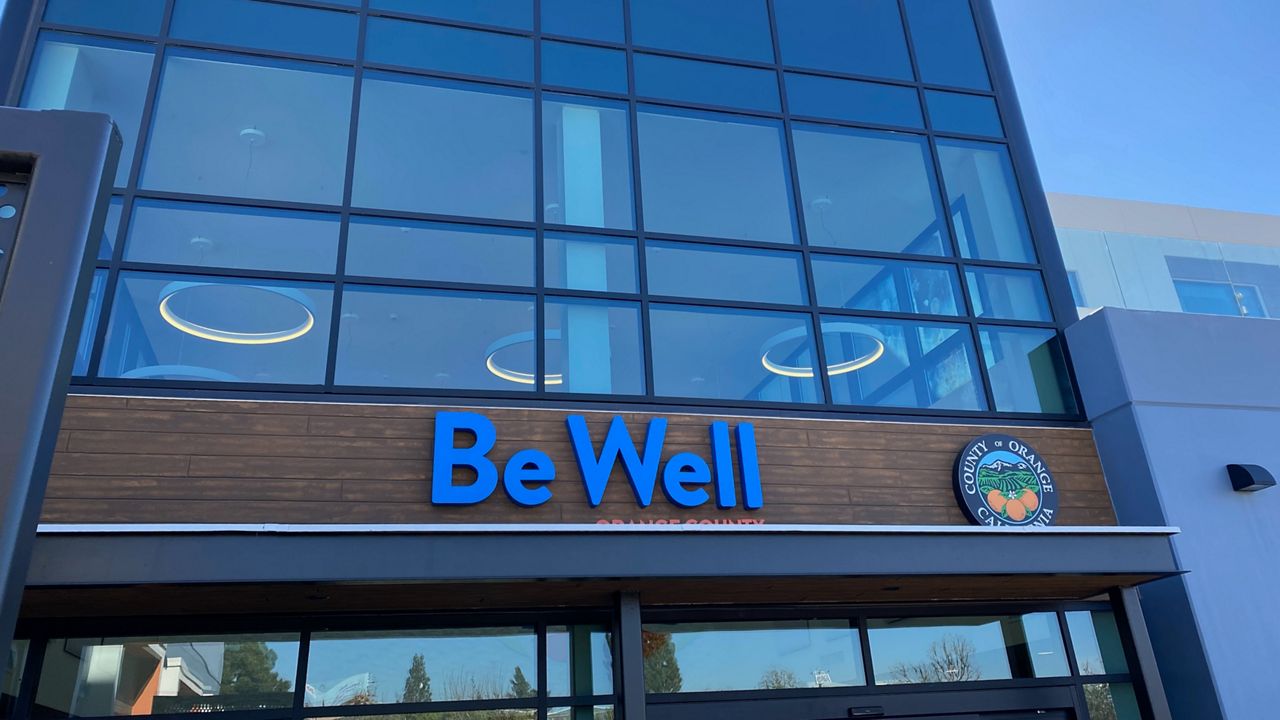ORANGE Calif. — A panel of county officials gathered Tuesday to discuss the county’s expansive health and wellness program while teasing plans for the future.
The panel included Supervisors Katrina Foley and Doug Chaffee as well as Be Well OC CEO Marshall Moncrief.
The panel gathered at the two acre Be Well OC campus in Orange, the beginning of what Moncrief called “a system of care” in which patients can expect immediate help along with a plan for the future. The county is planning two more Be Well OC campuses, strategically placed to offer broad access.
The idea is for every Orange County resident to have free access. Each campus is designed to attend to all phases of a crisis. Someone suffering from a mental health breakdown and drug abuse can be medically treated for withdrawal, visit with a clinician, and even stay more than just a standard eight hour drying out period common to jails. All those services are available in one location.
“We have good services, but we don’t have a system,” Moncrief said. “It’s like navigating a maze.”
Be Well OC also aims to build a network that can quickly communicate, made up of local hospitals, county health officials and even the faith community.
One of Be Well OC’s functions is to centralize services so that a person suffering from a mental health or substance abuse crisis doesn’t have to seek a counselor or medication after being released. The services are meant to treat the immediate needs of the patient, then carry them to the next stage of treatment before they’re discharged.
The Orange Campus, which has been operating for about a year, is meant to save the time and resources of other institutions traditionally tasked with treating emergency patients. Moncrief said Orange County had about 50,000 emergency room patients in 2021 who were there for substance abuse and mental health reasons. That’s not the best place for them, he said.
Neither is jail. Police officers have to spend at least an hour booking people, then put them in an isolation cell to sober up. With Be Well OC, they simply walk them into the campus, then head back to work.
“It’s not just a facility,” said panelist Dr. Veronica Kelly, chief of mental health recovery service for the county. “It’s a philosophy.”
Be Well OC is meant to service all comers whether they’re insured through work, Medicaid or have no insurance at all.
The campus in Orange currently caters to adults. But rising concerns over mental health and wellness among children and young adults have triggered plans for additional programs. The county plans to account for those groups in the new campuses. When and where those campuses will be has not yet been announced.
Some local cities have already begun their own systems of care. Huntington Beach has built its Navigation Center to house, treat and help move people to permanent housing. Costa Mesa has invested heavily in its programs and recently secured a $3.6 million grant to clear out a homeless encampment at Talbert Regional Park. That grant will go toward maintaining the park, a full-time staffer to manage it and housing for 60 people.
Foley also brought up opioid addiction, specifically fentanyl, as a major catalyst for recent spikes in the homelessness count.
Orange County is currently processing findings from its annual point in time count, which will, for the first time since 2019, include unsheltered homeless populations.
The full range of social, mental health and economic factors have influenced the execution of Be Well OC policymaking. The system is meant not just as a place to drop off homeless people, or distraught citizens suffering from a mental health episode — the goal is lasting treatment.
“What we’ve created here is a one-stop shop,” Moncrief said.



